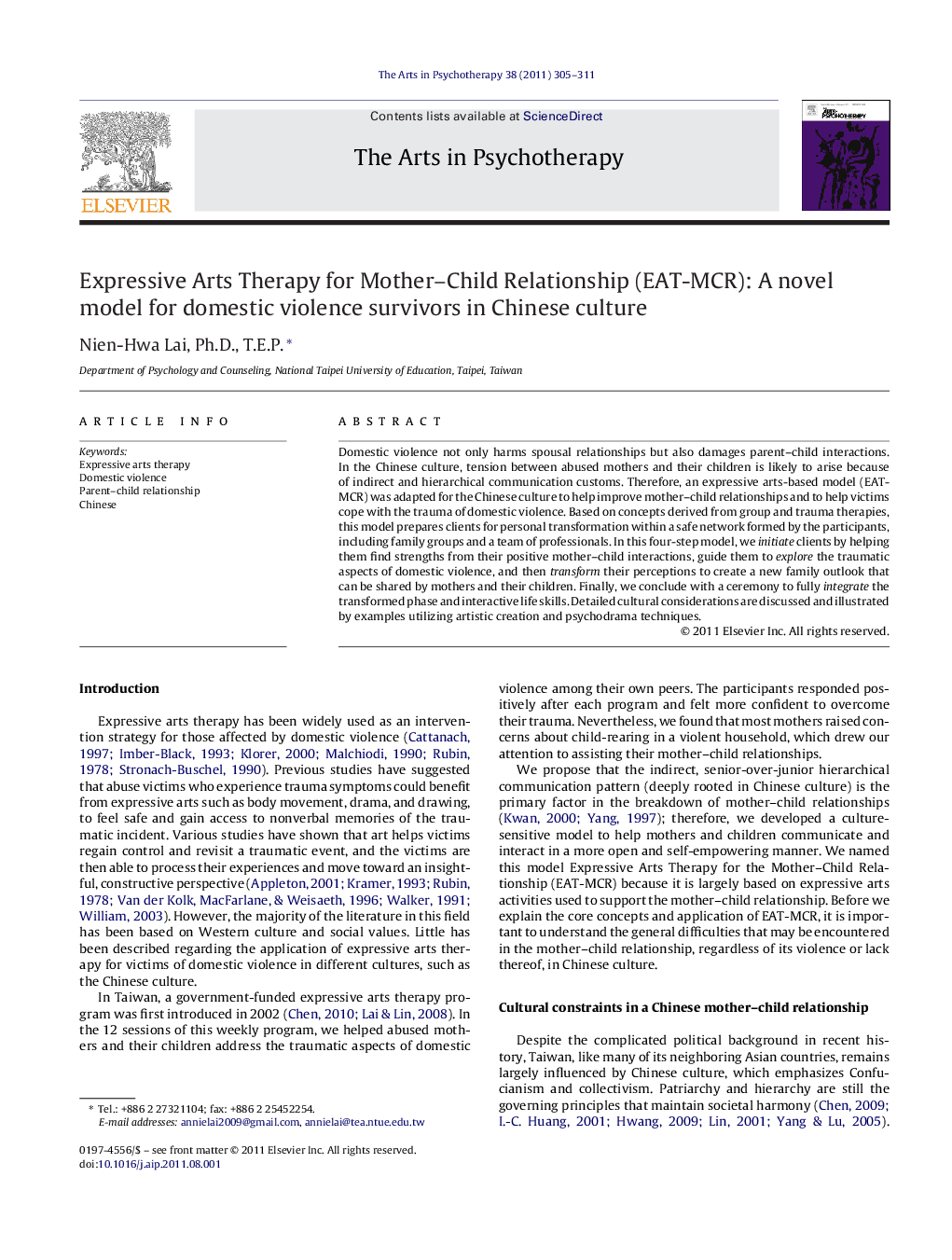| Article ID | Journal | Published Year | Pages | File Type |
|---|---|---|---|---|
| 343885 | The Arts in Psychotherapy | 2011 | 7 Pages |
Domestic violence not only harms spousal relationships but also damages parent–child interactions. In the Chinese culture, tension between abused mothers and their children is likely to arise because of indirect and hierarchical communication customs. Therefore, an expressive arts-based model (EAT-MCR) was adapted for the Chinese culture to help improve mother–child relationships and to help victims cope with the trauma of domestic violence. Based on concepts derived from group and trauma therapies, this model prepares clients for personal transformation within a safe network formed by the participants, including family groups and a team of professionals. In this four-step model, we initiate clients by helping them find strengths from their positive mother–child interactions, guide them to explore the traumatic aspects of domestic violence, and then transform their perceptions to create a new family outlook that can be shared by mothers and their children. Finally, we conclude with a ceremony to fully integrate the transformed phase and interactive life skills. Detailed cultural considerations are discussed and illustrated by examples utilizing artistic creation and psychodrama techniques.
► This model aims to help domestically abused Chinese mothers and their children. ► The model is based on expressive arts therapy, group, and trauma therapies. ► We initiate them to find strengths, explore and integrate with new life prospects. ► The work tailors to Chinese culture, while carefully challenging obsolete values.
